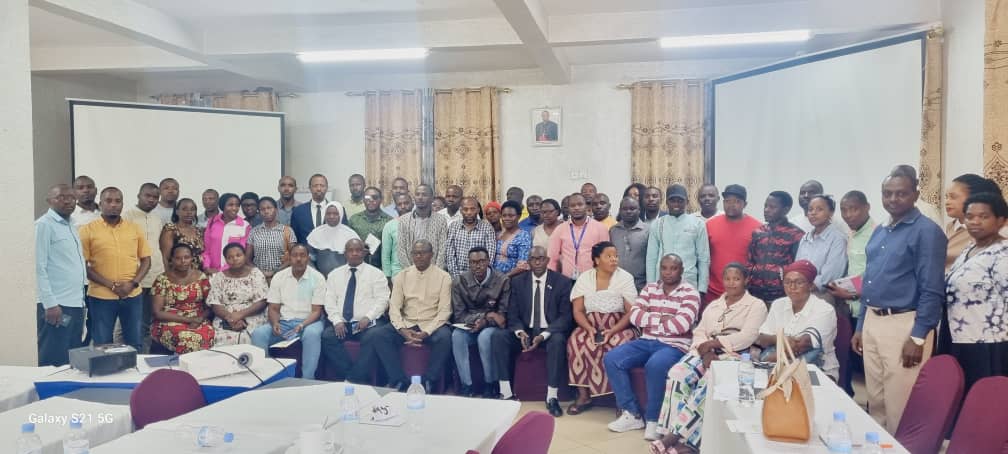Rubavu: Traders avoid using EBM targeted by Authorities
In the Rubavu district, the Rwanda Revenue Authority (RRA) has announced measures against traders who fail to issue Electronic Billing Machine (EBM) receipts after a troubling trend of closing their shops during inspections.
This issue was highlighted during a Private Public Dialogue (PPD) aimed at bridging the gap between government authorities and representatives of the private sector, as well as the business community itself.
The event, organized by the Private Sector Federation (PSF) on October 24, 2024, brought together stakeholders from Nyabihu, Ngororero, and Rubavu.
The RRA indicated that this has become a common practice in the area, especially in the city, where inspection staff encounter closed shops as traders communicate alerts to each other when they suspect inspections are underway.
The meeting revealed numerous challenges faced by traders, whether independent entrepreneurs or those working for companies, and discussed possible solutions.

A significant portion of the discussion focused on collaboration with the RRA, where traders expressed appreciation for the role of taxation while requesting more facilitative measures.
Karake Rutera Max, head of the RRA in Rubavu, noted that it has become a norm for traders to close their shops for the entire day, causing market shutdowns or leading some to barricade themselves as if they hadn’t conducted any business that day.
He stated, “We have taken measures that when we arrive and find a place closed, we will seal it using an official closure notice or a lock. If the trader returns, they will be prohibited from operating until they come to our office. Anyone who ignores this will face severe penalties.”
He continued, “We have been surprised to find that when our staff enter the market, traders are closing up and leaving without having conducted any business.
The market president will inform us of all the traders, and anyone who is found absent or closed will be called to account. If they do not come, we will look for them wherever they might be, and we will implement other measures against them, as it amounts to theft as well.”
One citizen who spoke to Ijambo.net indicated that people in Rubavu are increasingly fearful of the RRA, more so than any other government authority.
It has become common to find shops, bars, and other businesses closed due to fear of inspections, with some traders being ejected without having settled their dues.
Traders found in violation face detainment. One trader, who requested anonymity, commented, “When they catch you without using EBM, they take you away in their vehicles, and when you arrive, they demand payment of the fines incurred due to the offense they found you committed.
It’s unacceptable for a successful trader to be apprehended in this manner when they have done nothing wrong that day.”
Niyonsaba Mabete Dieudonne, president of the Private Sector Federation in Rubavu, emphasized that tax laws must be upheld while urging the RRA to engage more closely with traders to ensure everyone understands how to use EBM effectively. “Our discussions focused heavily on EBM, and we ask for closer engagement so that everyone comprehends its use.
We need to engage all traders along with responsible authorities to increase awareness and understanding of these obligations.”
Patrick Uwihoreye, the Deputy Mayor in charge of economic development in Ngororero, shared his personal experience with the consequences of carrying goods without an EBM receipt.

After facing fines, he decided to advocate for better compliance among traders and customers regarding EBM receipts. “I urge everyone here representing others from various districts to encourage their peers to carry receipts for their purchases.
No one should evade the nation’s taxes; those who constantly watch over RRA should see how far we have come thanks to the taxes we must pay.”
The use of EBM receipts in Rwanda began in October 2013 with the introduction of dedicated machines, evolving to include computerized systems, telephones, and online platforms to streamline the process for everyone and eliminate excuses for non-compliance.
Author: Emmanuel Twishime

